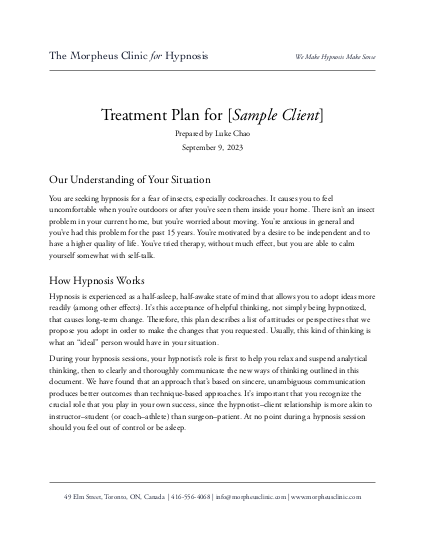
Does the idea of having to give a speech or presentation in front of a group scare you? Are you worried that you will stutter, stumble or mispronounce words? Are you afraid of blushing, sweating or shaking? Are you intimidated by the possibility of forgetting your words or appearing foolish in front of your colleagues? Are you cowed by the prospect of humiliation? And is your fear sabotaging your career?
If you answered yes to any of these questions, you are far from alone. Public speaking is the number-one greatest fear that people suffer—well ahead of the second most common fear, death.
Fortunately, there is a solution. Hypnosis can help you become the confident, radiant, respected public speaker you want to be. Imagine dazzling your bosses and being admired by your peers. Imagine the effect that this skill will have on your social life. Imagine the success you will achieve by mastering the art of presentation, and how your career will sky-rocket. Discover how to conquer your nerves and nail that speech with hypnosis. It’s fast, easy… and it works.
Need Proof?
Look no further than Morpheus founder Luke Chao. If you met Luke 25 years ago, you wouldn’t recognize him today. In fact, he barely recognizes himself. He recalls having to give a class presentation in tenth grade that turned into a disaster. His hands were actually shaking so badly that he was unable to read his cue-cards. Now Luke is a confident, well-spoken presenter who enjoys speaking in front of an audience and even actively seeks opportunities to do so. A large crowd? Bigger is better, he says. What about a room of skeptics? A challenging group is even more fun!
So, the question remains: How did Luke transform from a nervous wreck into the toast-master he is today? The answer is simple: hypnosis, NLP, and other methods that his associates now practice at The Morpheus Clinic for Hypnosis.
But Luke isn’t the only presenter who has benefited from hypnosis. Sarah (name changed at request) was an educational curriculum consultant who hadn’t presented in front of a group since the age of eleven. More than twenty years later, she found herself attending a mandatory workshop… where she knew she would have to speak in front of the group. Terrified at the prospect, she turned to hypnosis. After only two sessions at Morpheus she attended the workshop. This is what she had to say:
“The first day, Wednesday, I raised my hand to answer FOUR questions during the day. As you know, I have not done this since grade school. Today, I volunteered to share our group work results standing in front of the whole class of 25. I didn’t feel any anxiety doing this… I want to thank you for your wonderful work. I’m so pleased with the transformation and will be sure to recommend your services to others.”*
Where It All Began: Getting to the Root of Your Public Speaking Fears
Humans are born with only two natural fears: the fear of falling and the fear of sudden noises. All other fears we acquire either from experiencing them directly or by unconsciously borrowing them from people around us. For young children, the fear of public speaking is unheard of—most children enjoy being the centre of attention. And as you have probably noticed, children have no qualms about causing a scene in a crowded location, such as during a church ceremony or on a busy subway car. Most of us develop our fear of public speaking in elementary school during our first experiences presenting to a group. And it is understandable why this could be a traumatic experience. Your teacher, who knows more about the subject you are speaking about than you do, is scrutinizing both the content of your presentation and your style. Your classmates are bored and probably uninterested in what you have to say and, if you make a mistake, they have no reservations about laughing at you. This experience becomes fixed in your brain and the way you think and feel about it becomes a template for how you react to public speaking in the future.

The Mindset You Need to Become a Fearless Public Speaker
Despite your early imprints, public speaking today is not nearly as arduous as public speaking was in grade school. First, if you’re asked to present by your superiors at work, it’s because you are a knowledgeable person on the subject. This means you can be confident that what you have to say is relevant, important and will be well-received. If you are asked to speak for informal reasons, such as at a wedding, it is because those selecting you genuinely believe that you are a great fit for the position. In either situation, you were chosen because people had faith that you would be not only an excellent candidate for the task, but the best candidate available. Secondly, unlike grade school—where any slip-up would be a highly-anticipated source of amusement—your peers do not want you to fail. They want you to deliver an engaging, thought-provoking presentation that is a pleasure to watch. They are on your side. And if you do make an error, they will remain understanding and free of judgement because they know how challenging it is to speak in front of a crowd. These are not the same critics as the ones in fourth grade; these are your supportive peers who want to see you succeed.
One method that will boost your presentation style is knowing who in the room you are speaking to. Typically, there are three types of audience members. The first is the distracted person who is obviously not paying attention. Don’t worry about him; even if you do make a mistake, he probably won’t notice. The second type is politely listening to you. The third is your fan. They are thoroughly engaged in what you have to say, and you have fully captured their attention. And this is the person that you should speak to. You will automatically draw energy and confidence from their positive response, and your presentation will immediately become more vibrant and captivating. By following this method, you will soon find that the number of third-type people in your audience will rapidly increase.
How Hypnosis Can Transform You into the Public Speaker You Wish to Be
Imagine that you are giving your presentation alone in your bedroom. Piece of cake, right? Now imagine giving it in front of a friend, or a couple of friends. A little more challenging, but you are still able to pull it off with aptitude and grace. Now, put yourself in front of a room of eight or more people, some of whom you are not very familiar with. Suddenly, it becomes an overwhelming struggle. Yet your presentation is the same.
Hypnosis focuses on making the connection between your presentation skills when demonstrated in front of your mirror and when in front of a crowd. These connections will enable you to give the same flawless speech under both circumstances. Our minds are divided into two parts: the conscious and the unconscious. Both segments are responsible for observing and absorbing information and using this information to create thoughts and beliefs. The differences between them are that a) our conscious mind operates on rational logic whereas our unconscious is governed by emotion, and b) we are aware of our conscious thoughts but unaware of our unconscious ones. Our first negative experiences with public speaking sparked a belief in our unconscious that public speaking is something to be terrified of. As a result, no matter how hard we try to rationalize our fears, we are unable to overcome them.
Though a series of deep relaxation methods, hypnosis allows us to speak to your deepest fears, doubts and worries and resolve your fear at the root. From there, powerful motivational suggestion replaces this fear with reassuring yet truthful ideas that will help you become the confident public speaker you desire to be. It is important to note that hypnosis is not “mind control.” While you are very relaxed during the session, you remain completely aware of your surroundings and everything that the hypnotherapist is saying. As a result, it is impossible for the hypnotherapist to “implant” ideas or “make” you do anything you do not want to. Hypnosis is one hundred percent safe, as well as easy and highly effective.
Master the Art of Public Speaking to Enhance Your Career… and Your Life!
If you’re serious about making a change, the next step is to call us at 416-556-4068 (in Toronto) or 1-888-HYPNO-24 (toll-free in the U.S. and Canada) to schedule a free initial consultation online through video conferencing or at our office in downtown Toronto. This one-hour meeting allows us to figure out how we can help you, and it lets you understand our practices and principles a little better, so that you can make an informed decision.
If scheduling is difficult for you, completing our self-directed consultation and requesting a custom treatment plan is another way to start.
Otherwise, complete the form below and we’ll get back to you with our next availabilities:
Disclaimer
* The ideal results described on this site, including testimonials, represent the outcome of an ideal client. Your results might be different, and will depend on your hypnotic suggestibility, motivation to change, past history, and many other factors that are not in our control. In addition, our work as hypnotherapists is not medical care, psychotherapy or psychological advice.

